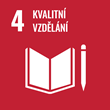Informace o projektu
Psychologie signalizace: Výzkum komputací umožňujících kooperativní komunikaci

- Kód projektu
- GA23-05655S
- Období řešení
- 1/2023 - 12/2025
- Investor / Programový rámec / typ projektu
-
Grantová agentura ČR
- Standardní projekty
- Fakulta / Pracoviště MU
- Filozofická fakulta
Human cooperative intentions are intrinsically hidden from other people: willingness to help, support important values, or abide by mutually binding norms are all confined to the mind. While people can verbally advertise their intentions for cooperative and prestige benefits, such verbal communication is often mistrusted and considered as “cheap talk” because it can be easily faked. Instead, people may choose to advertise their sincere intentions using symbolic, embroidered gestures that are associated with important costs. Whenever the benefits of collective action are at stake, costly signals help assort group members with sincere cooperative intentions. However, while costly signals are found across human societies, it is puzzling while people lacking cooperative intentions would not perform the costly gesture and then just free-ride on the collective effort of their partners. Indeed, this is exactly what would the economic rational choice model predict. To solve this puzzle, we propose that the effectiveness of costly signals is facilitated by the specific architecture of the human mind whereby the computations of utility of costly signals rely on intuitive and affective cognitive processes. By biasing the perception of signal costs and benefits, the intuitive processes generate a parameter space where the utility of increasingly costly signals is perceived as negative by uncommitted individuals. However, this proposition has not been empirically tested, leaving a critical gap in our understanding of fundamental aspects of human communication. To this end, we will conduct eight experimental studies with the general Czech and US populations. We will use an experimental framework previously developed by our team where participants are first scored on their cooperative intentions and then take part in financially incentivized collective-action dilemma where they can use costly signals to communicate their intentions. Using this framework, we will achieve three interrelated objectives. Specifically, we will 1) assess whether the decision to signal is facilitated by intuitive or deliberative cognitive processes, 2) test whether cooperative intention biases the perception of costs, benefits, or both, and 3) provide an ecologically valid test of our theory using real-world costly signals.
Cíle udržitelného rozvoje
Masarykova univerzita se hlásí k cílům udržitelného rozvoje OSN, jejichž záměrem je do roku 2030 zlepšit podmínky a kvalitu života na naší planetě.
Publikace
Počet publikací: 8
2025
-
Biased Perceptions of Costs and Benefits in Ritual Participation: Insights from the Kavadi Ceremony
Rok: 2025, druh: Další prezentace na konferencích
-
Differential cost-benefit estimation stabilizes cooperative benefits of commitment signals
Rok: 2025, druh: Další prezentace na konferencích
-
Estimated costs and benefits of participation in an extreme ritual in Mauritius
Evolutionary Human Sciences, rok: 2025, ročník: 7, vydání: e29, DOI
-
Signaler psychology: Cognitive processes underlying costly signaling in humans
Rok: 2025, druh: Další prezentace na konferencích
2024
-
Biased cost and benefit estimations facilitate the effectiveness of cooperative costly signals in humans
Rok: 2024, druh: Další prezentace na konferencích
-
Signaler psychology : Why people send costly signals of commitment?
Rok: 2024, druh: Další prezentace na konferencích
-
The evolution of human collective ritual as a platform for communicating cooperative intentions
Rok: 2024, druh: Další prezentace na konferencích
-
Zkreslené odhady nákladů a přínosů při (náboženském) kooperativním nákladném signalizování
Rok: 2024, druh: Další prezentace na konferencích
